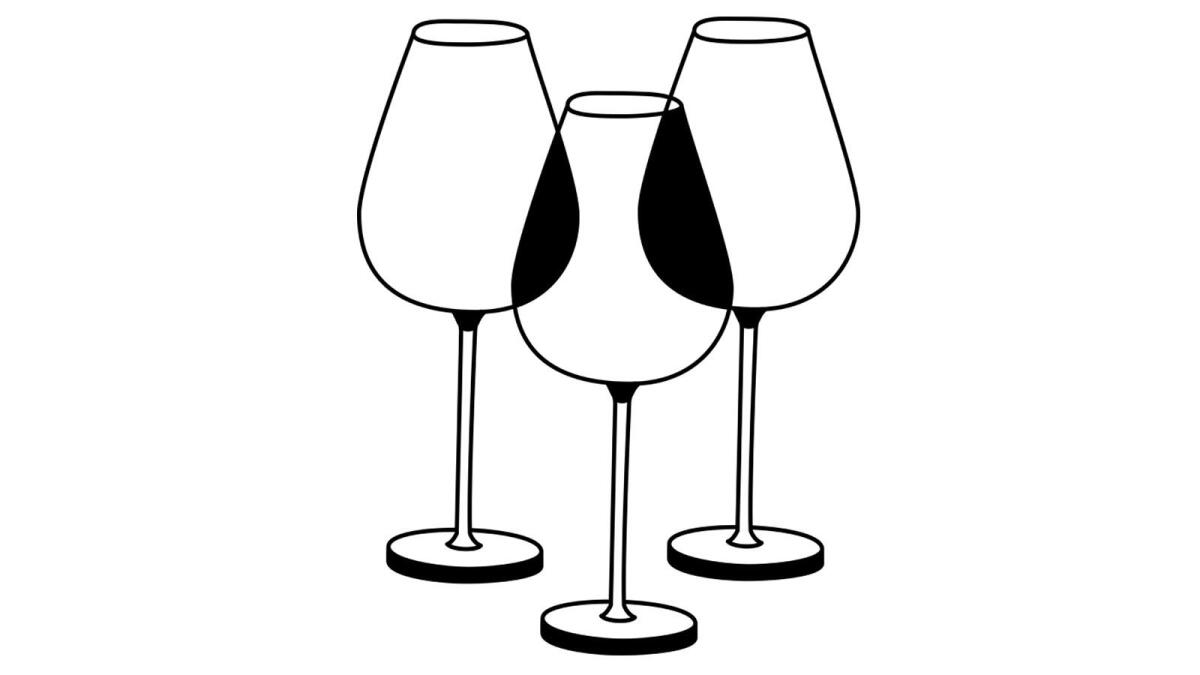How the restaurant industry is tackling its substance abuse problem
- Share via
PORTLAND — On a recent Tuesday morning, about two dozen people gathered around a long table in the old brick building that houses the Jacobsen Salt Co. in Portland, Ore. All were somehow connected to the restaurant industry: chefs, line cooks, servers, bartenders, a bouncer, a sommelier, a retired restaurateur. All were also committed to somehow staying sober.
Gabriel Rucker, whose restaurants Le Pigeon and Canard are about a mile away, read a preamble and then opened the only West Coast chapter of Ben’s Friends, an alcoholism and addiction support group for those in the restaurant industry. Rucker talked about the stress of working over the Memorial Day weekend, and the discussion soon broadened to familiar issues of long hours, difficult kitchen situations, wage concerns and the toll the job takes on family life. The thread of not drinking or using drugs wove through the conversation like kitchen twine.
Rucker, a tall, forthright guy with arms covered in requisite tattoos, jumped up and poured coffee for those whose cups were empty, then ran downstairs to make another pot. I’ve been to countless Alcoholics Anonymous meetings, but this was the first where the speaker doubled as server and barista. Welcome to the service industry.

Ben’s Friends is not an AA meeting, although it is very similar to one. Rather it’s part of a recent, growing movement within the restaurant industry to address issues that have long plagued the profession — often glorified, more often ignored, and as much a part of kitchens as the uniform.
A 2015 study found that those who worked in the food service and hospitality industry had the highest rate of substance abuse of any profession; rates of alcohol abuse were higher only in mining and construction. Depression, anxiety and eating disorders, issues that are often linked to substance abuse, are also all too common, masked by long hours and adrenaline, and by a commitment to the very ingredients that define the industry. Imagine your food and wine, weaponized.
“I had a come-to-Jesus moment that I could be a bad role model, I could be no role model, or I could be a good role model. It could go beyond foie gras and pork short ribs,” said Rucker, who has been increasingly public about his sobriety. He and fellow Portland chef Gregory Gourdet started a Zero Proof dinner last year featuring a nonalcoholic tasting menu; it drew other high-profile sober chefs, including Andrew Zimmern, Michael Solomonov and Sean Brock and bartender Evan Zimmerman, all of whom have been open about their struggles with substance abuse.
Ben’s Friends was started in 2016 by Mickey Bakst and Steve Palmer, two Charleston, S.C., restaurant veterans whose friend Ben Murray, a chef, committed suicide after struggling with addiction and depression. There are now groups in Raleigh and Charlotte, N.C., Richmond, Va., and Atlanta, as well as the one in Portland.
Rucker, Palmer and others said that although AA had been a key part of their own recovery — and for many still is — they’d found that many people were intimidated by it, maybe put off by the 12-step program or the “God thing.”
“We believe that because of the hours and the subculture, we really needed something that spoke to our business,” Palmer said. “We felt that we needed to come out from the shadows and be a loud voice so that people know that we’re here.”
Ben’s Friends isn’t the only response to what many see as a long-overdue industry reckoning.
Sacramento chef Patrick Mulvaney recently launched I Got Your Back, a program for hospitality workers that provides resources, referrals, a hotline and a training program for on-site certified people to identify the warning signals of those in crisis. The focus is on the whole spectrum of issues, including mental health, not just drugs and alcohol. IGYB uses language specifically geared to those in the industry: The resource page is called “The Pantry,” the training program is called “The Recipe Book” and much of the lingo is purposefully familiar to food professionals.
“It’s got to be for the restaurant industry specifically; there are too many people that we’ve lost,” Mulvaney told me. The catalyst for him, he said, was having four colleagues die in four weeks. “We’re really good at hospitality. How do we turn that around and focus on ourselves?”

Other chefs have begun instituting changes in their own restaurants. Chef David McMillan, whose own sobriety became a focus of his latest book, “Joe Beef: Surviving the Apocalypse: A Cookbook of Sorts,” has started a Sunday night support group in Montreal at his restaurant McKiernan.
“Half of the people in this industry can’t string together a bar tab, much less enough for rehab, and many people can’t take a month off work,” McMillan said. “Wellness is not what goes on in kitchens. You can lose your compass real quick.”
Another reason why support that’s specifically tailored to the hospitality industry is important is proximity. If you have issues with booze and food, most counselors and therapists will suggest the obvious: Get another job. For McMillan, who owns restaurants and a wine company, that wasn’t an option, nor is it for many in the industry. Those triggers and stresses are going to be there, so a new support system needs to be built to address that directly, from inside.
It’s not just those in the kitchen who are raising the flag. Kat Kinsman of Food & Wine started the online site Chefs With Issues, which provides a platform and resources for mental health issues in the food industry.
Why is this suddenly gaining traction? For some, Anthony Bourdain’s suicide a year ago functioned as a wake-up call.
“Tony’s passing away was a watershed moment,” Zimmern told me recently. Zimmern, who has been sober for almost 30 years, said he’s heartened to see the industry finally begin to address the issues. “The more conversation, the more transparency, the better — anything that supports folks in this industry, which has always been a great place to hide out.”
“There’s a confluence of events,” said Palmer when I asked him about a shift in attitude. “High-profile chefs getting sober, Bourdain, the opiate crisis, with people dying at a much younger age. That accelerated the conversation.”
“Being very vocal about my sobriety was a way of proving myself,” Gourdet said. “In the old-school AA you didn’t talk about it that much, but doing media was a part of my story after ‘Top Chef.’ You get more comfortable speaking about it.”
Talking about recovery is more problematic than many think, for a variety of reasons. The recent backlash on social media against chefs trying to change their lives — fueled by a story by Hannah Goldfield in the New Yorker that was critical of McMillan’s public sobriety and his admission of previous bad behavior — seems to misapprehend that addicts understand that getting sober isn’t a pass for what you did, or didn’t do, when you weren’t sober. A crucial aspect of sobriety is coming to terms with that history — in AA lingo, it’s “making amends” — and carrying on.
Sobriety doesn’t just mean putting down the bottle or filling your dinner guests’ glasses rather than your own. It also means facing what got you there, which may have included binges, blackouts, terrible behavior, broken relationships and bad business dealings. For some of us the list goes on: rehab, divorce, bankruptcy, depression, attempted suicide. Addiction has a long and nasty grocery list. Then, once you’re sober, you have to recover from all that catastrophe as well as the addiction that led to it, which takes time and apology and reckoning.

Going public can be part of that. But going public is often complicated — there’s a good reason that AA’s second A stands for Anonymous. It’s a bedrock principle of the 84-year-old program, and having high-profile chefs soapbox about their recovery has seemed to some to be more self-promotion than self-help.
But that backlash feels to some in recovery to be an extension of the way that addiction and mental health issues are still stubbornly stigmatized in this country, as is our way of providing support and resources for those who need them. And this is even more true for women, which I thought 14 years ago when I got sober, and thought again recently, as I realized that most of the people I could find to talk to for this story were men.
“It’s important that women’s voices are out there,” said Carrie Neal Walden, a former server and bartender and one of the early board members of Ben’s Friends. “We’re the fastest-growing group, with the highest death rate,” she said. (A recent study indicates that alcohol-related deaths among women have grown by 85% from 2007 to 2017.)
Walden is very aware of how the recent sobriety conversation has been almost entirely from high-profile male chefs but sees that as part of the industry itself, where there are fewer women than men in positions of leadership.
“We’re seeing the redemption narrative now,” Kinsman said, with the same chefs who were glamorized for their bad behavior now glamorized for having stopped it. And women — especially women with children — haven’t tended to share in that narrative.
But it’s the larger narrative itself that is changing. By identifying issues and working to address them rather than putting them back in the pantries, wine cellars and pastry kitchens, the restaurant industry is beginning to turn the model of service back on itself.
The support groups in this article all have online presences where you can locate meetings; or contact I Got Your Back by texting HOPE to (916) 668-4226 for 24/7 confidential crisis support. If you or a loved one is considering suicide, please call the National Suicide Prevention Lifeline at (800) 273-8255.
More to Read
Eat your way across L.A.
Get our weekly Tasting Notes newsletter for reviews, news and more.
You may occasionally receive promotional content from the Los Angeles Times.











